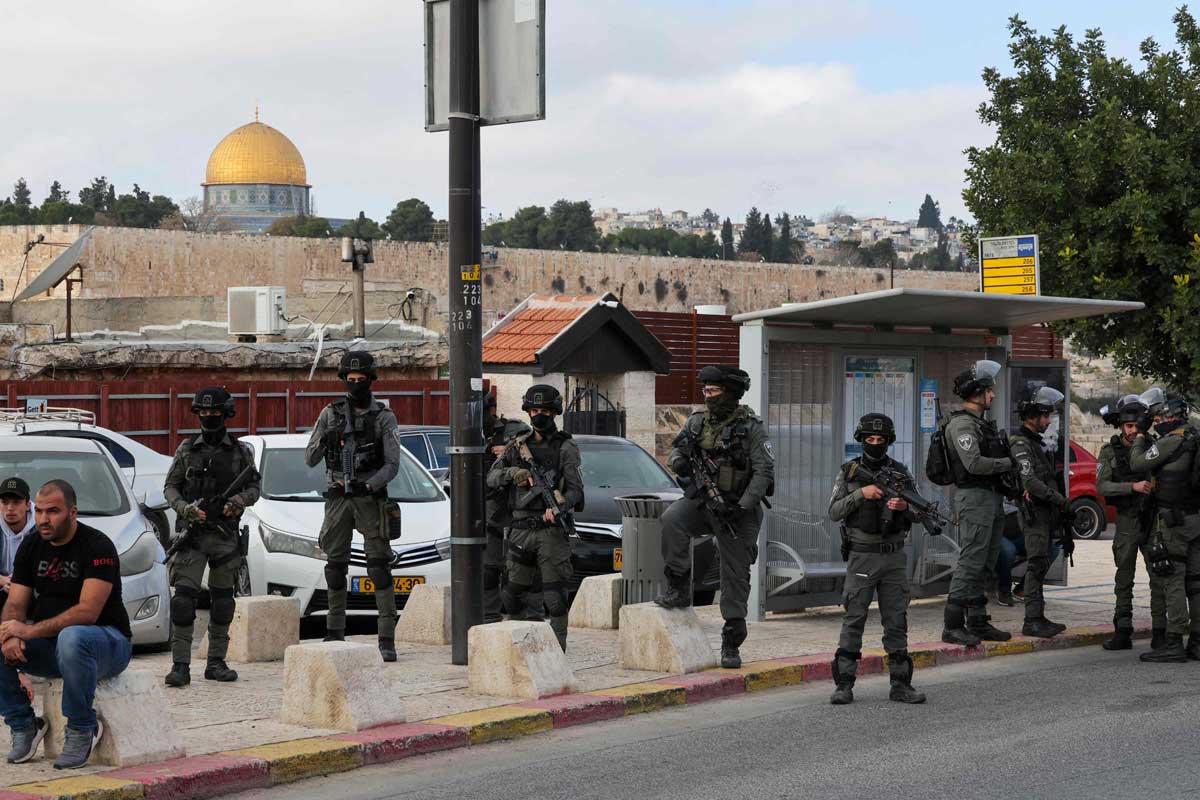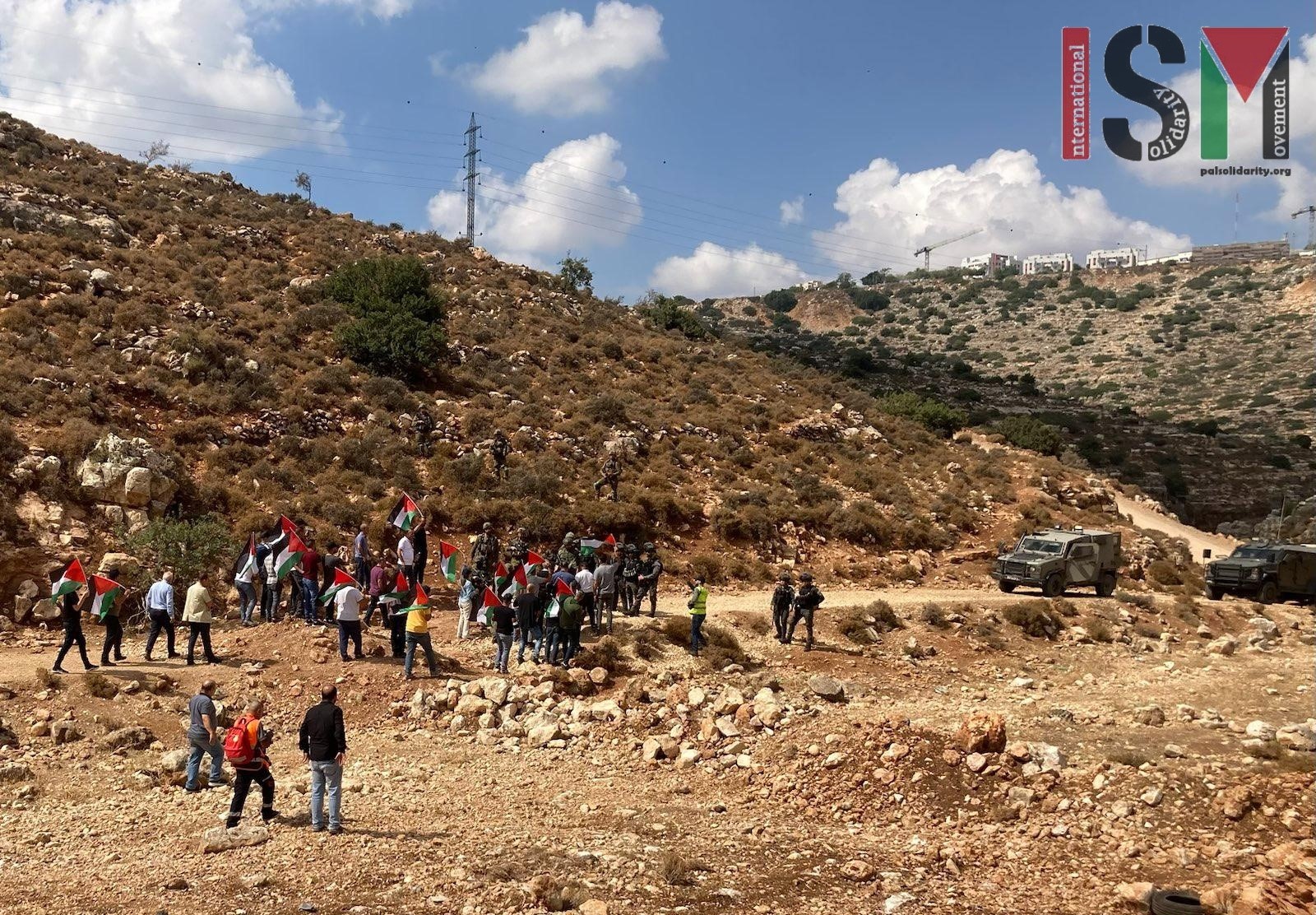Tag: Tear-Gas Canister
-
A Dozen Weeks of Restriction: Muslim Worshipers Blocked from Al-Aqsa Mosque
29 December 2023 | International Solidarity Movement | East Jerusalem On Friday, December 29th, streets surrounding the Al Aqsa Mosque compound were filled with the sight of Muslim worshipers prostrate in prayer. Arbitrary access restrictions by occupation forces were amplified through the erecting of barricades to the Old City, allowing only some elders…
-
Weekly demonstration in Der Istya – 6th October
On Fridays 6th, people in Deir Istya protested against a new outpost that was built three months ago close to the village. After the prayer almost 70 protesters, among them members of the local Popular Resistance Committee, residents from the surrounding villages, ISM internationals and Israeli activists went down from the hill and, waving their…
-
Ten people arrested from Beit Kahel: the village targeted with violent night raids and demolition threats
August 25| International Solidarity Movement | Beit Kahel, Occupied Palestine As part of a targeted collective punishment towards the village of Beit Kahel following the death of an Israeli settler in Gush Etzion, ten individuals from the village have been arrested by Israeli Occupation Forces. Seven of the detainees are all part of the Asfara…



